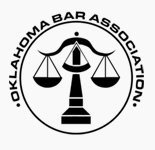Running a small restaurant is a labor of love, but it brings money matters to the table too. However, in running small restaurants there may be times when it is tempting to overlook some tax duties, but those little gaps can add up. When unreported income piles up, you could find yourself in a tough spot.
Reasons why underreporting may happen
In a small restaurant setup, underreporting income can happen for various reasons:
- Easier for earnings to slip with cash transactions
- Restaurants often experience busy and slow seasons
- Record-keeping can be challenging
- Tip reporting is hard to monitor
- Complex tax rules
- Human errors
- Untracked deliveries
- Unrecorded discounts
Addressing these challenges early can help ensure compliance with your tax obligations. Otherwise, you might end up facing potential legal and financial penalties.
The accuracy-related penalty
The accuracy-related penalty comes into play if you underestimate your tax payments due to unreported income or incorrect deductions/credits. There are two key penalties that may apply by the Internal Revenue Service (IRS) to an individual:
- Negligence or disregard of the rules
- Substantial understatement of income tax
Negligence means not following tax rules properly when filing your taxes, while disregard refers to carelessly ignoring these rules. Substantial understatement comes into play if your tax liability is 10% less than it should be or $5,000.
If you claim the Section 199A Qualified Business Income Deduction, a 5% penalty might apply. If you receive a notice or letter about this penalty, it means you owe it. The penalty amount is 20% of the tax underpayment due to negligence/disregard or substantial understatement.
Interests and penalties
Remember, interest accumulates on penalties, but paying in full can halt further accrual. You might be able to reduce or remove the penalty if you prove reasonable cause and good faith.
If you disagree with the penalty, you can dispute it by calling the provided number or writing a letter explaining your stance. Keep the notice or letter handy and provide details about the penalty and why you think it should be removed.
To avoid penalties, make sure you file accurately and on time, paying your tax by the due date. If you are unable to pay on time, consider applying for a payment plan, which could help reduce future penalties. As a small restaurant owner, understanding and navigating these penalties is key to ensuring a smooth financial journey.












